#Mind Exploration
Text
Unveiling a New Episode!
Join us for the latest installment in our audio series, where the storyline takes a thrilling twist!
The newest episode of "Slowly Unspooling," titled "The Messages" follows closely as we delve into Kai's captivating journey within the enigmatic confines of their workplace. Through the aid of a reliable recorder, Kai candidly opens up about their innermost thoughts and feelings. Brace yourself for even more unexpected revelations to come!
Prepare yourself for a thought-provoking encounter as our main character receives enigmatic messages and undergoes an eerie sensation of being watched.
Please be aware that this episode addresses intense themes, including emotional turmoil, work-related pressure, existential unease, sleeplessness, mental health challenges, self-doubt, isolation, work-related demands, perplexity, ear strain, and audio distortions. We kindly advise you to approach this content with sensitivity.
Featuring the exceptional talents of Aspen Rayne as the voice of Kai, this episode guarantees an unforgettable auditory escapade.
For those intrigued by the complete script, fret not! You can access the transcript for your perusal through the following link: Transcript Link
We would like to express our gratitude to zapsplat.com for providing captivating sound effects, and to pixabay.com, whose enchanting music sets the tone throughout the episode.
Don't let this electrifying episode slip through your fingers! Tune in on your preferred platform by following this amazing link: Listen Here. Your auditory journey awaits!
#slowlyunspooling#podcasters of tumblr#podcast writer#horror podcast#fiction podcast#podcast episode#new episode alert#audio series#TheMessages#Mystery Plot#Thrilling Narrative#Emotional Journey#Mind Exploration#character development#intense themes#voice acting#sound effects#existential anxiety#mental health struggles#AspenRayne
7 notes
·
View notes
Text
Consciousness Explored: Uniting Minds at the Confluence
The study of consciousness remains one of the most profound and elusive pursuits of human inquiry. Across disciplines, from neuroscience to psychology and philosophy, scholars are drawn to unravel the mystery of what makes us aware, how thoughts flow, and how creativity emerges. The confluence of these fields has brought us closer to understanding individual consciousness, the psychology behind it, and its role in human progress.
In recent years, this inquiry has seen a renewed focus, thanks to advancements in neural interface technology and deeper exploration into the confluence of thought, which merges science, psychology, and creativity. Theories of consciousness are evolving, offering new frameworks for how our minds work and what that means for the future of humanity. In this blog, we will explore the significance of consciousness, the interplay between psychology and creativity, and the role modern technology plays in helping us map this territory.
The Significance of Consciousness in Human Development
At the heart of human experience is consciousness, a complex web of thoughts, emotions, and awareness that defines who we are. Psychologists, philosophers, and neuroscientists have all tried to articulate what consciousness is and why it matters. The psychology of consciousness delves into how individuals process information, perceive reality, and make decisions.
As philosopher David Chalmers has pointed out, consciousness presents a "hard problem" in that it eludes strict definitions or purely material explanations. While we can describe neural correlates of consciousness, the subjective experience—what it's like to be aware, to have thoughts and feelings—remains deeply enigmatic.
In the last century, thinkers like Sigmund Freud and Carl Jung contributed foundational ideas, suggesting that consciousness represents only the tip of the iceberg, with much of our cognition occurring subconsciously. Freud’s theories about the unconscious mind influenced both psychology and culture, offering insights into how unacknowledged thoughts and desires shape behavior. Jung extended this idea, introducing concepts like the collective unconscious, where individual consciousness taps into a shared well of human experience.
Theories of Consciousness: Mapping the Mind
As the field has advanced, newer theories of consciousness have emerged, attempting to explain how neural activity gives rise to the rich tapestry of subjective experience. Two major theories have garnered attention: Global Workspace Theory (GWT) and Integrated Information Theory (IIT).
Global Workspace Theory, introduced by Bernard Baars, suggests that consciousness works as a stage or a "workspace" in the brain, where information from various neural modules comes together to be broadcasted for higher-order cognitive tasks. Essentially, this theory proposes that consciousness is the result of different brain systems communicating and sharing information. It views consciousness as the brain's way of managing vast amounts of data, ensuring that only relevant information is brought to the forefront of our awareness.
On the other hand, Integrated Information Theory, developed by Giulio Tononi, provides a mathematical framework for measuring consciousness based on how well information is integrated within a system. According to IIT, consciousness arises from the brain’s ability to integrate a large amount of information into a unified whole. This theory focuses more on the complexity of connections between neurons and how they contribute to conscious experience. IIT posits that even simple systems—like a thermostat—may have a rudimentary form of consciousness if they integrate information, though at a very low level compared to humans.
While these theories differ in their approach, they share a common goal: to explain how brain processes give rise to conscious awareness and experience. And yet, despite these advances, the question of "why" remains elusive. Philosopher Thomas Nagel famously asked, "What is it like to be a bat?" to highlight the challenges in understanding subjective experience from an external perspective. Theories may explain how consciousness functions, but the value of consciousness and its subjective quality remain profound mysteries.
Creativity and Consciousness: The Confluence of Thought
The creative process is one of the most fascinating manifestations of consciousness. Creativity confluence, or the intersection of diverse thoughts and experiences, is often the breeding ground for groundbreaking ideas. Psychologists like Mihaly Csikszentmihalyi have explored how consciousness enters a state of flow, a deeply immersive experience where a person’s thoughts, actions, and emotions harmonize. This “flow of consciousness” is not only crucial for creativity but is also a hallmark of optimal human functioning.
Csikszentmihalyi’s flow theory suggests that when people engage in meaningful, challenging activities, they often experience this heightened state of consciousness. Whether it's an artist at the easel or a scientist in the lab, flow represents the confluence of individual consciousness and creativity. When in flow, time seems to disappear, and the boundaries between thought and action blur. This experience is one of the most rewarding aspects of human consciousness, one that drives progress and innovation across domains.
In his book "Flow: The Psychology of Optimal Experience," Csikszentmihalyi writes: “The best moments in our lives are not the passive, receptive, relaxing times...The best moments usually occur if a person's body or mind is stretched to its limits in a voluntary effort to accomplish something difficult and worthwhile.” This exploration of the psychology of consciousness reveals how deeply interconnected creativity and cognition are, underscoring the value of consciousness in human evolution.
The Confluence of Factors Shaping Consciousness
The richness of consciousness doesn't emerge from a single source. Rather, it is shaped by a confluence of factors, including biological, psychological, and environmental influences. Human consciousness evolves not only through individual experiences but also through interactions with others and the environment.
For instance, cultural narratives play a significant role in shaping how we perceive the world. The confluence book of modern psychology could be thought of as a series of chapters exploring how individual consciousness is influenced by broader societal structures. Books like "The Conscious Mind" by David Chalmers or "Consciousness Explained" by Daniel Dennett delve into the scientific and philosophical dimensions of this interplay. These are often regarded as some of the best books about human consciousness, offering insights into how we experience the world and how our thoughts shape it.
Mind Explorations and the Partnering of Thoughts
Consciousness is not just an individual experience. We often share our thoughts, collaborating and partnering with others to achieve common goals. In doing so, we experience a confluence of thought, where ideas from multiple minds come together to form something greater than the sum of their parts. This process of collaboration drives innovation and progress, especially in fields like technology, art, and philosophy.
Historically, the partnering of thoughts has led to some of humanity’s greatest achievements. From the dialogues of Socrates and Plato to the collaborative research of Watson and Crick, the fusion of minds has fueled progress. This shared experience highlights the importance of consciousness not only as a personal asset but as a tool for collective growth.
Inspirational Consciousness Quotes for Reflection
To better understand the profound nature of consciousness, it's helpful to reflect on the words of great thinkers. Here are a few quotes that capture the essence of consciousness:
“Consciousness is the gift of seeing oneself through the eyes of the universe. We are not just observers, but participants in this vast confluence of thoughts and matter.” — Carl Sagan
“Our thoughts shape our world. Consciousness is the force that binds us, the thread connecting all of humanity.” — Albert Einstein
“The brain is wider than the sky, for, put them side by side, the one the other will contain with ease, and you beside.” — Emily Dickinson
These quotes remind us of the depth and power of human consciousness, inviting reflection on how our thoughts influence not only our own lives but the broader fabric of existence.
The Role of Technology: Confluence Meets Innovation
In the modern era, neural interface technology offers new ways to explore and enhance human consciousness. By connecting the brain directly to machines, researchers are unlocking the potential to enhance memory, cognitive abilities, and even creativity. Companies like Neuralink are leading the charge, aiming to use technology to tap into the deepest recesses of the mind.
This merging of confluence technology and consciousness psychology represents the next frontier in human evolution. As we continue to understand the mind’s complexities, technology may offer new tools to unlock its full potential.
Conclusion: Embracing the Flow of Consciousness
As we move forward into an era where the confluence of factors—technology, psychology, and creativity—continue to shape human consciousness, we are reminded of the profound mystery that lies at the heart of our awareness. From the theories of consciousness to the experiences of flow and creativity, the journey of understanding the mind is far from over. Through collaboration, innovation, and reflection, we can continue to explore the depths of human consciousness, empowering both individuals and societies to reach new heights.
#theories of conciousness#mind exploration#psychology of conciousness#neural interface technology#individual conciousness
0 notes
Text
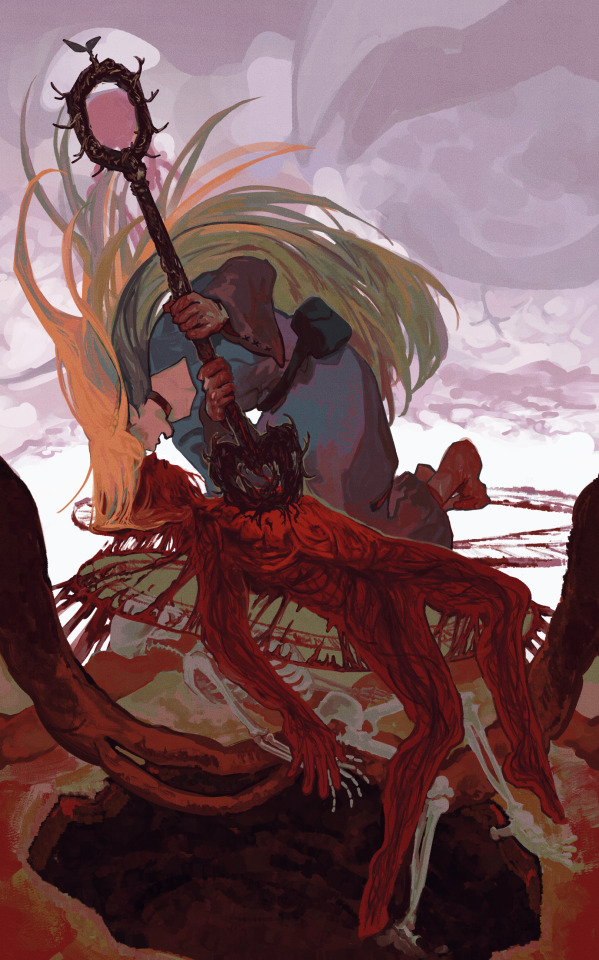
dragon meat, you, and me
#marcille donato#falin touden#farcille#dungeon meshi#delicious in dungeon#tw blood#tw body horror#tw gore#as a normal farcille fan this revival has been on my mind since i first read it and getting to watch it is like yippee!!#like messy revivals are everything - the consequences that will haunt u for the rest of the time they are alive#the initial hopeful moments where it all seemed well but quickly descend to That not being the case - losing not only the bit of evidence#evidence that your dream may work out but also someone you deeply care about in the process… marcille my Beloved#ofc wholly thruout the journey - at the forefront of it - getting falin back was the most crucial point but so wuickly :(( it was lost#on the other end its crazy to think about the compoments of falin now - human - dragon (dungeon) - marcille’s magic and desperation#the food the crew cooked (digested) - she is made of many parts!!#also i did not realize how medical it feels to draw smth like this. i dont usually explore the inner parts or use a lot of blood#in my work so rendering everything and looking up refs it felt quite magical (?)#ruporas art
16K notes
·
View notes
Text
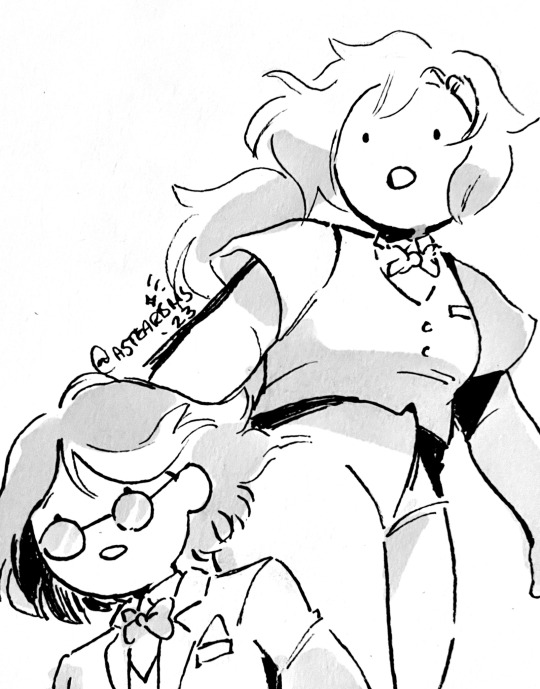
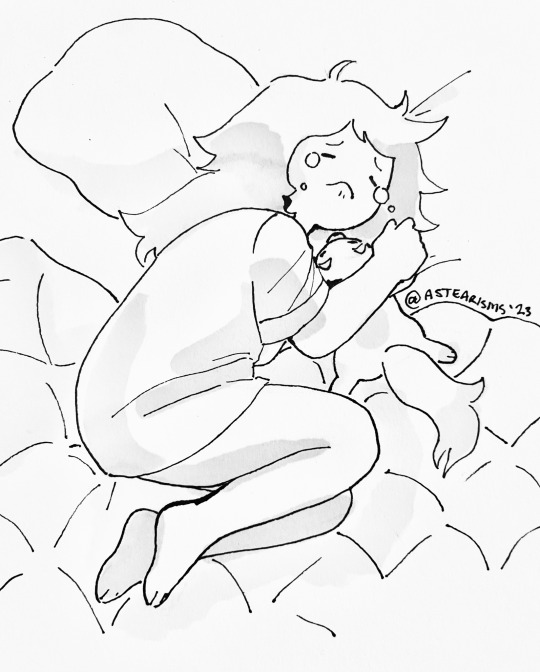
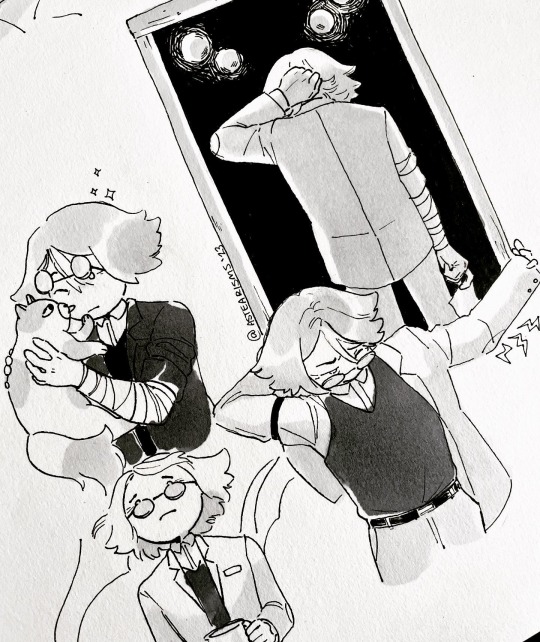
fionna and cake drawings before and after watching the episodes so far. it’s nostalgic and somehow cathartic and poignant and relatable and—it just started
#i’m part of the demographic where i was a kid when adventure time started and now watching fionna and cake as an adult makes me emotional#because did they keep us in mind when writing fionna and her attitude towards life#the dissatisfaction#the hoping for something more#something more magical than this dreary life filled with working to live and living to work#it’s so reflective of how life feels for me and perhaps many of us#and also Simon’s episode was so sad but so well thought out#exploring his feelings after the events of the adventure time finale is something I’m glad we get to see#there were already so many layers to his character in AT but now it feels like we get to dive deeper#I also felt emotional hearing Rebecca Sugar singing and writing a song that encapsulates his feelings so well#😭 it’s been awhile seeing her work exist alongside these characters#and all of these emotions get stronger because I remember AT being the one to inspire me to be a storyboard artist#when I was younger I used to follow many of the board artists here in tumblr and would get so inspired by them#to create simple but powerful boards that can capture the feelings of characters so well#Rebecca Sugar’s songs for the AT characters inspired me so much too#I’m sorry this is long I’m just feeling so many things experiencing all of this again as an adult#my art#fanart#adventure time#fionna and cake#fionna the human#cake the cat#simon petrikov
10K notes
·
View notes
Text
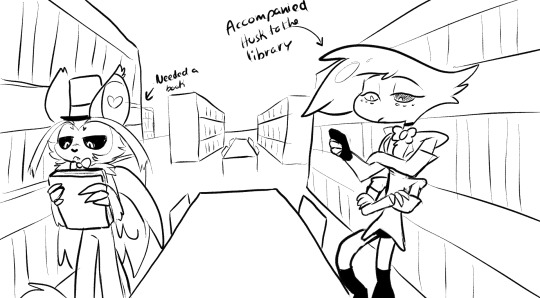


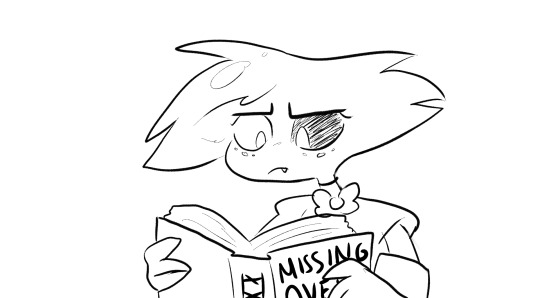
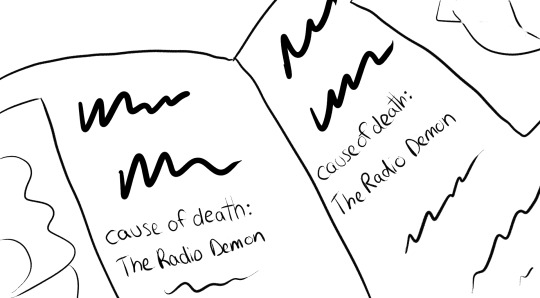
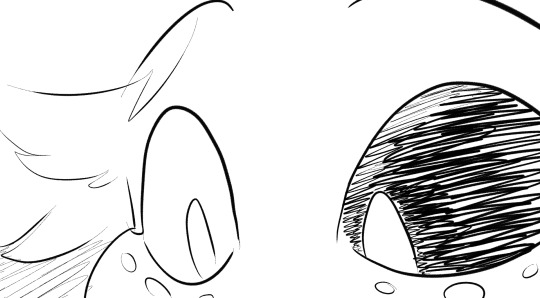
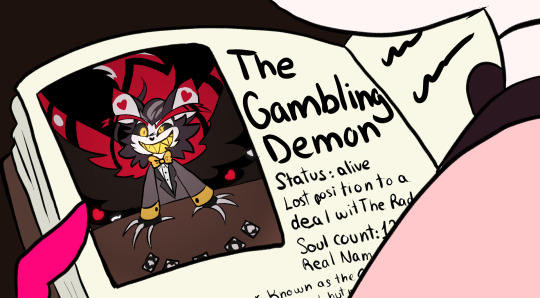
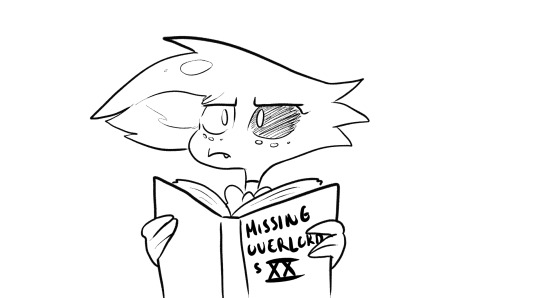
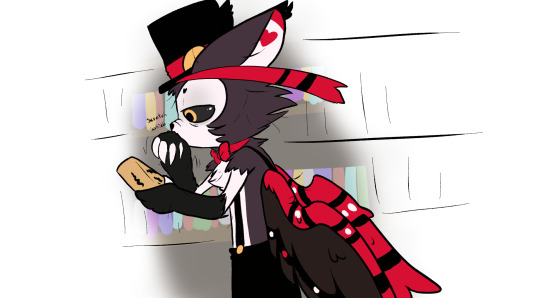
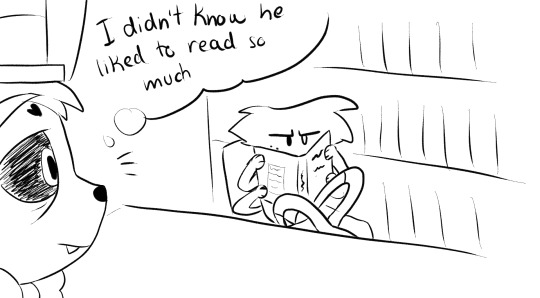
In which Angel Dust gets big on politics
EDIT: Part 2
#hazbin hotel#angel dust#husk hazbin hotel#fanart#IDK IDK the idea that angel would fact check husks past has been on my mind since ep 4#and he seemed curious about alastors past too so...#probably too ooc but idk smth to explore ig#also i saw an artist draw overlord husk very furry and plumpy like he takes care of himself in contrast of self loading current scrunky hus#and yes#angelhusk#huskerdust#msmimundo
8K notes
·
View notes
Text
Leo's relationship with death
Leo really doesn't like to think about death.
I mean, we all saw how much impact Karai's death had on all of Mad Dogs but Leo was the only one that had to be dragged from her, yelling after her, he really, really didn't want to lose her.
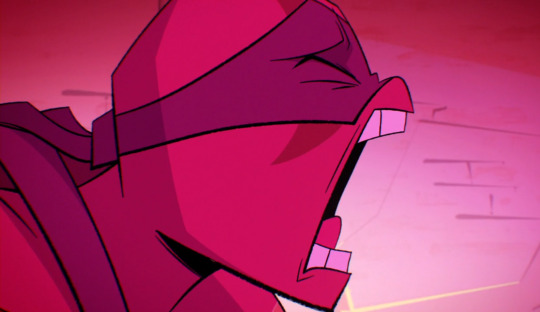

And I think when he lost her it left a deep scar.
I saw posts talking how Leo wants for things to get back to normal and pretend nothing happened, which I completely agree with. I think it's in big part because of his fear of repeating losing a close one.
He REALLY doesn't want to even acknowledge death.



Here Raph seemed to be getting through to Leo-

-but the moment he mentions possibility of his family dying?
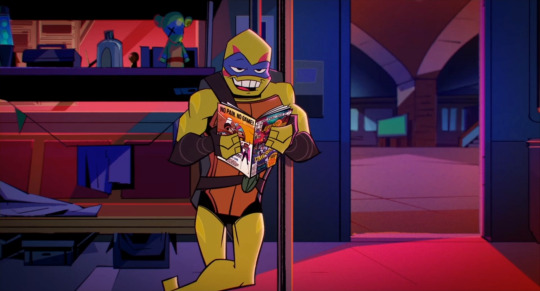
Nope, time to deflect, joke and feign ignorance.
Leo's aware that death is a big part of being a responsible hero and that's why he'd rather goof off with his brothers and not train.
Because obviously when you ignore something it just dissapears, right? So if they ignore severity of certain situations and possibility of dying it won't happen, right?

If they don't treat it seriously they'll be fine! Totally!
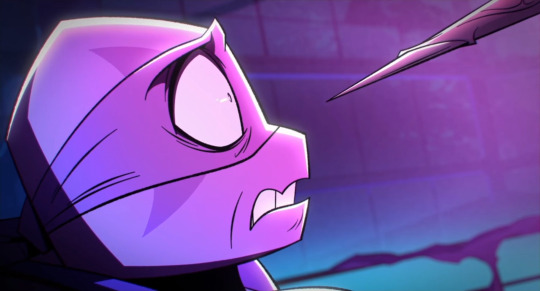

Then Raph shields Leo from the Krang and sends him away.
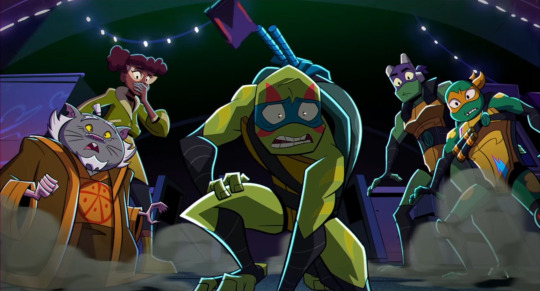
And it's as if Karai's death stared right in his eyes.

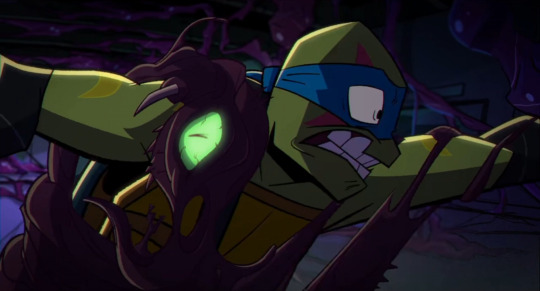
So Leo picks up the slack of leadership in order to save Raph. He behaves carelessly during this time but can you really blame him, he desperately wants to save his brother, to stop yet another family member from death that he is so scared of.

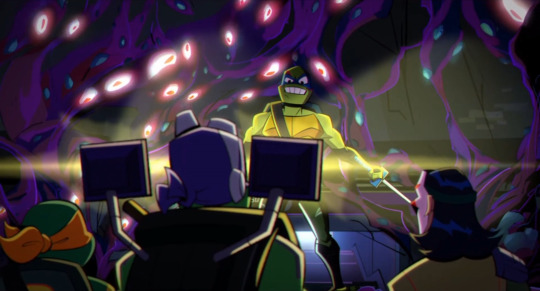
He still tries to be positive and nonchalant, that "pfff obvioulsy everything will turn out alright!" but at the end of the day, it's not that simple.
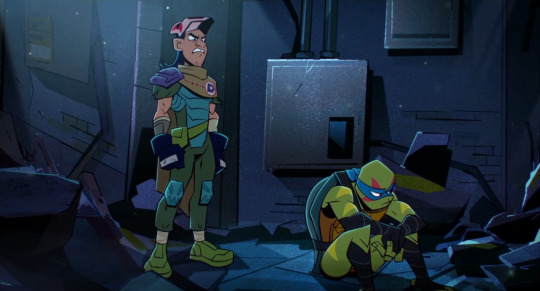
Casey's speech had hard time to really hit Leo, he's still avoiding confronting resposibility, literally and metaphorically turning away from it. But the moment Casey says Leo's whole family died?
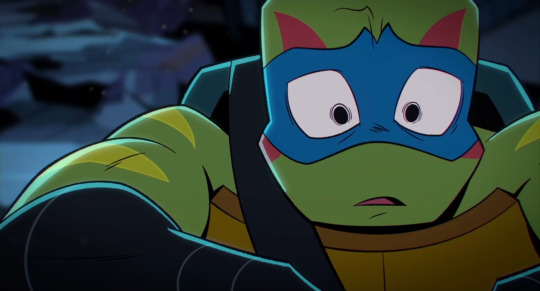

Now that made an impact.
And every time his family is in terrible danger he looks absolutely terrified and basically every time Leo has to be dragged away to not just return and try to save them again.
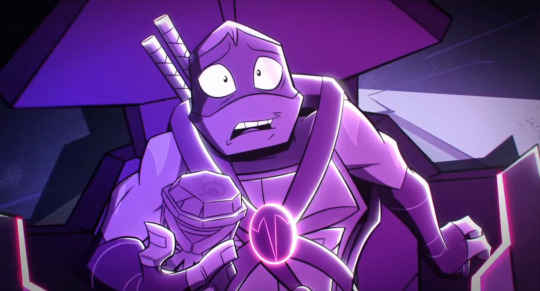
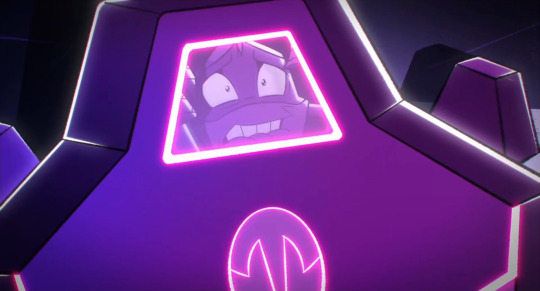


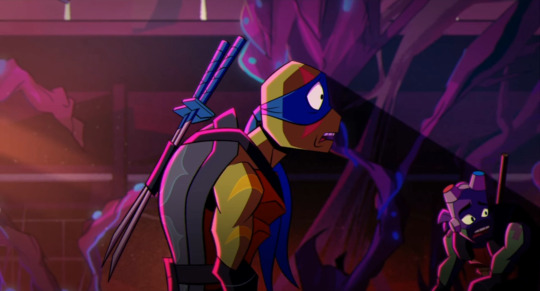
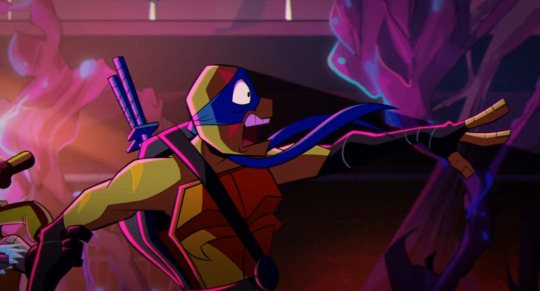


And when there's nobody to drag him away?
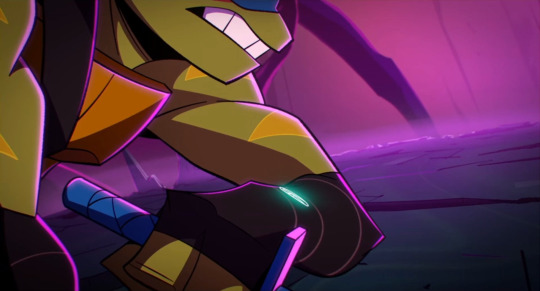
First thing he does is sacrifice himself. Because I don't think Leo is scared of his own death, or at least he is not as scared of him dying as his family. He'd rather give away his life than live through another grief.
Obviously I'm not sayin that the rest of the fam isn't terrified of close ones dying. But while they seem less aware (Mikey) and/or more ready for the possibility (Raph)...
Leo's wholly aware but he'd rather not be and ignore his fears until he can't anymore.
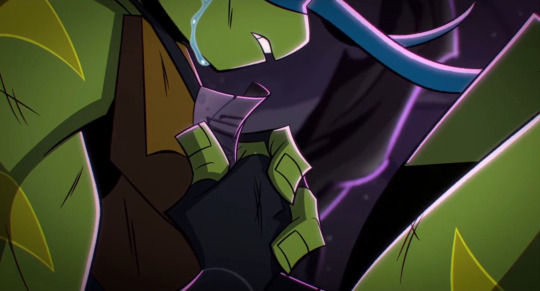
#rottmnt#rise leo#long post#don't mind me just trying to explore leo's avoidance#analysis#it thinks!#oh btw interesting that both karais sacrifice and raphs both have these pink tinted color palettes#idk if im saying something obvious but ive had this on my mind for so long i had to write it down
3K notes
·
View notes
Text
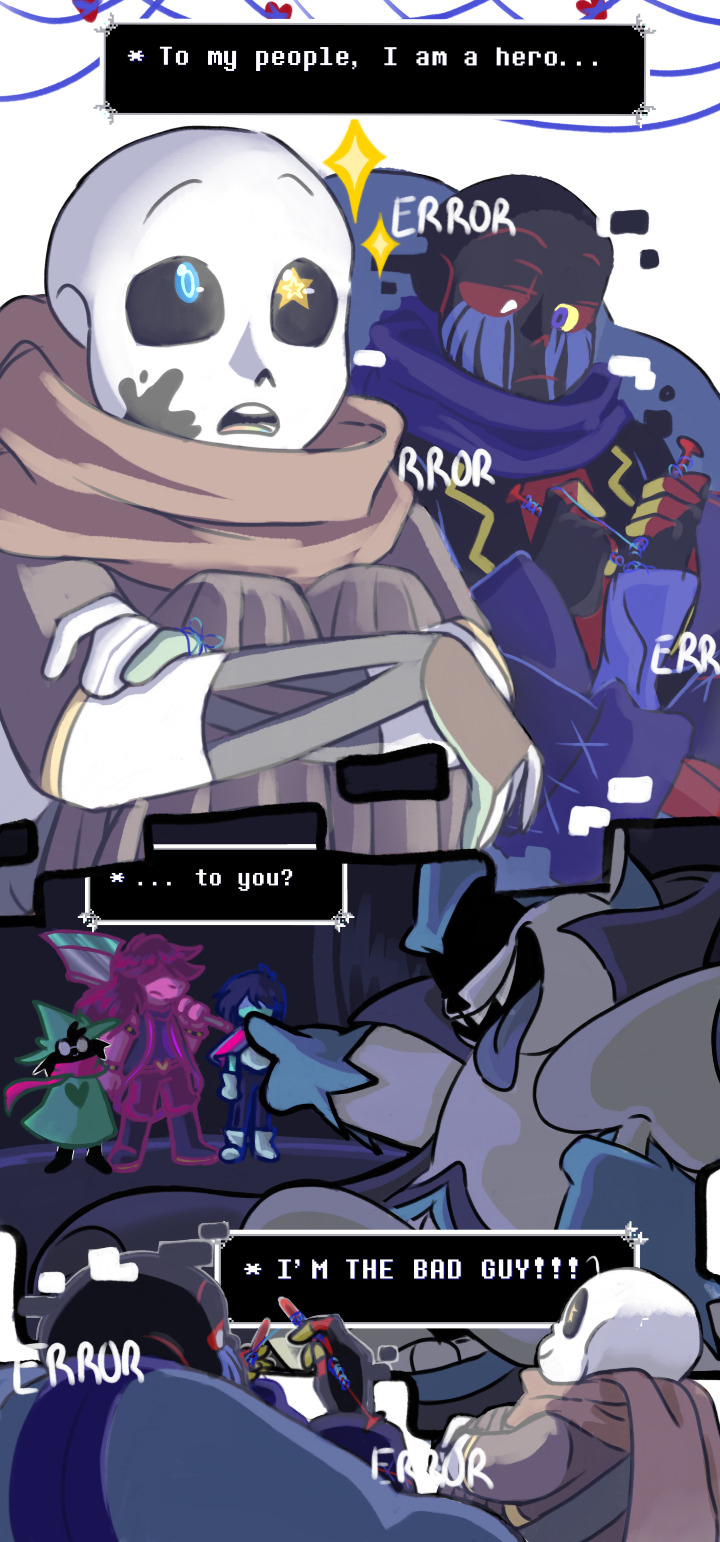
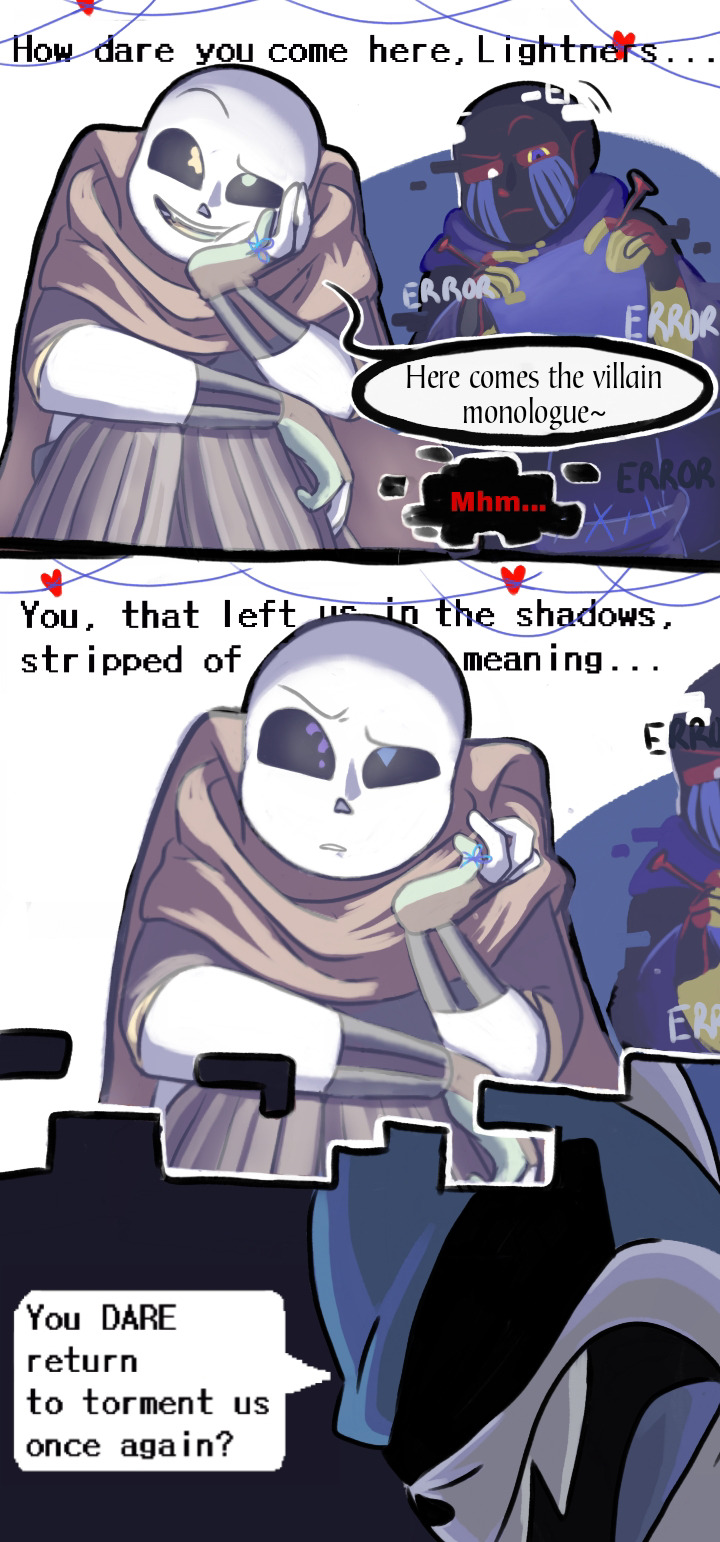

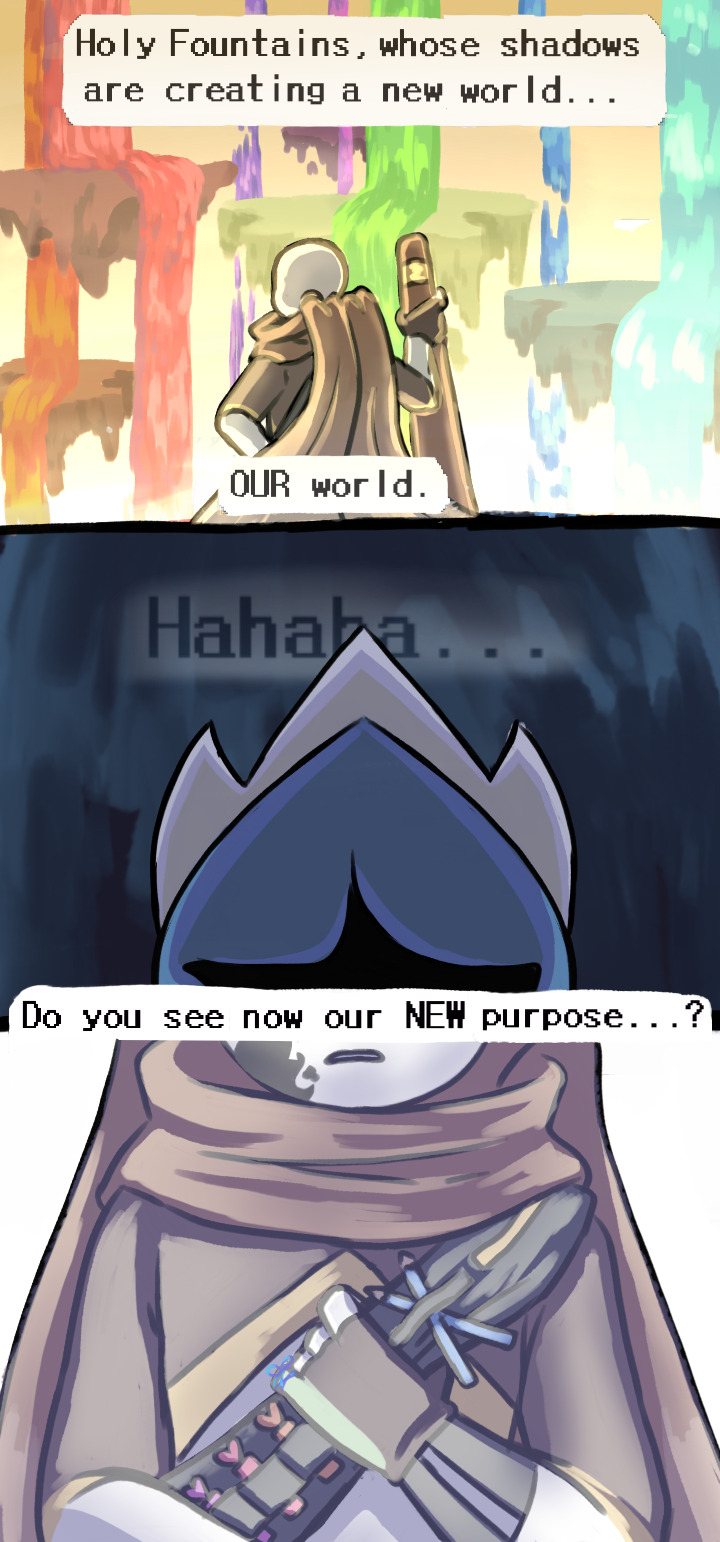
[Abandoned by the Lightners, his heart became cracked with hatred.]
Hitting a lil' too close to home?
#junie art post#ink sans#error sans#utmv#errorink#implied. but yea not the focus#this has been turning around in my mind for quite some time. im glad to finish it lmao idk if my ramblings make sense even.#so like listen. do you ever think about how similar the function of the utmv is to the dark worlds in deltarune.#in a meta narrative to fandom sense? idk the word#we are making exaggerated expanded worlds of the ordinary tools and entertainment of the real world and make it into something more#isnt that very very interesting?#and we explore every sort of possibility in that creation. both good and bad#and when all is said and done. every possibility found and the entertainment and secrets has all run out#we put it away. abandon and leave it behind#what is left? what happens to the world and characters we have created? can it sustain without us?#what of the ones left in the dark?#idk if yall saw me a few months ago but i reblogged comyet's old post of ink begging us not to leave him alone and to keep creating#yea that never left me#and seeing exactly THAT SCENARIO in deltarune made my brain iTCH#imagine an ink in King's position.... wait isnt that just underverse#mmmmmmm. darkner ink.....#also error is here too. not just for errorink or that i can't separate these two to save my life#but error is also one of the few people to be able to GET IT?? he can hear the creators too. ink cant#but hes pretty much programmed himself to avoid having a mental break down to this via reboot memory loss.#and ink has his own internal coping mechanism (hooray for short term memory loss)#these two idiots will do anything but confront truths lmfao#ahhh my favorite idiots. never change#mmmmm#deltarune
2K notes
·
View notes
Text
Hold on
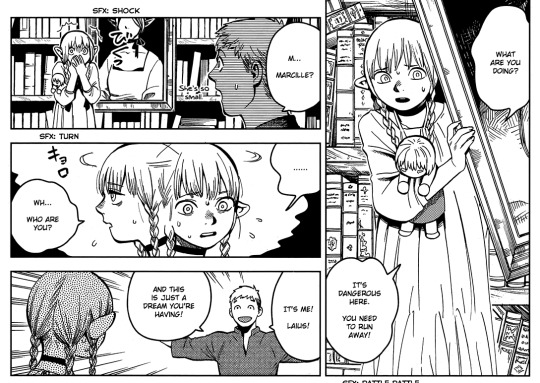
Was she


Hiding behind a portrait of her mother????? I know I joked about her emulating her mother to put off an air of a competent woman and mage but??? Did Ryoko Kui just straight up make the most straightforward visual metaphor of her feeling like a child behind the demeanor that she directly modelled off her mother??
#dungeon meshi manga spoilers#dungeon meshi spoilers#marcille donato#im going to lose my mind#they never explicitly explore marcilles feelings toward her mother very much but its there ITS THERE its all there#the little details#where she clearly holds her mother as her prime role model#consciously or not!!!#dunmeshi panel meta#marcilleposting
2K notes
·
View notes
Text
“I need to tell you something.”
Shitfuckno. Eddie doesn't even know why he's still surprised. This is how it always goes, after all. He should probably just give up and stop dating altogether – again.
Steve looks at him exactly as ominously as the words I need to tell you something require. Perfect Steve. Funny Steve. Sweet Steve. Sexy Steve. Steve, who Eddie had genuinely believed to be different.
Eddie sighs, barely suppressing a dark chuckle while he turns away from that perfect face. He doesn't want to look at Steve when he'll tell him the undoubtedly messed-up shit he's about to spill.
“Lemme guess, you're married?” That was what the last guy he dated told him, seven months after they got to know each other. It can't be much worse than that, can it?
Steve grabs Eddie's hand, causing him to involuntarily jerk up his head and meet his eyes.
“How did you know?”
Jesus H. Christ. Not again.
Eddie roughly pulls his hand out of Steve's grip and laughs a joyless laugh.
“Apparently I'm a good guesser.”
He stands up from the park bench the two of them had been sharing. “Well, Steve, this has been a blast. You should go back to your wife, or husband – don't tell me, I don't even wanna know – and I should um, get going. Maybe tell the next person right away what they'll be getting themselves into. Would save them a lot of wasted time, just in case cheating and going around other people's backs isn't really their thing, y'know.”
“Eddie, wait, let me explain!”
Eddie picks up his pace, but Steve, stubborn as he is, easily keeps up with him.
“I'm really not interested, man.”
“It's not – I'm not cheating on her!”
“Okay, so you have an open marriage, good for you. Still the kind of information you could've shared with me, say, three months ago, don't you think?”
“She's a lesbian.”
And that makes Eddie freeze on the spot. It takes Steve two steps before he realizes Eddie has stopped moving; he walks backwards until he's standing right in front of Eddie.
“She's my best friend,” he says, immediately using Eddie's stunned silence to his advantage. “Robin, my roommate – I told you all about her. We wanted to buy a house together and that turned out to be very complicated when you're not... Well, when you're not romantically involved. So we got married. For the, um, practical reasons. We never – we're like siblings. I love her like a sister. But she's also my wife. Platonically.”
It takes a few seconds until Steve's words sink in. Then, Eddie leaps forward and basically collapses into Steve's arms, needing to hold onto him to prevent himself from crashing to the ground.
Steve's arms are warm, strong, and as safe as ever.
“Eddie, are you okay?” Steve asks softly. His lips brush against Eddie's ear while he speaks, and worry colors his voice.
Perfect Steve. Too-good-to-be-true Steve.
“Jesus Christ, Steve,” is the only thing Eddie manages to say.
“I'm sorry, I didn't mean to scare you,” Steve says. “It's just – I've gotten some, um... Less than ideal reactions, in the past, whenever I told this when I was seeing someone. So I thought it'd be better to wait until things were getting serious.” He sighs, tangling his fingers in Eddie's hair. “I didn't wanna scare you off. Are we – are you okay?”
Eddie nods. He lifts his head from where it's resting against Steve's shoulder and raises his hands to squeeze them around Steve's face.
“We're okay,” he says. “And I'm sorry I didn't want to listen to you. I–” He stops; he can't find the words right away. It's still difficult to talk about those things; to let himself be vulnerable. But Steve has been honest with him, so it's only fair to return the favor.
“I've been hurt, Steve,” he confesses. “More than once. I've had some really shitty experiences with dudes not being honest with me. I thought that that was what was happening again, and I couldn't – I couldn't go through that again. Especially not with you.”
“Jesus, Eddie, I'm so sorry.”
“It's okay,” Eddie rushes to say, pulling Steve even closer towards him. “I trust you.” And as soon as these words leave his mouth, he knows it's the truth.
“I do want to be absolutely clear about one thing, though,” Steve says.
Eddie leans back in Steve's arms to give him an expectant look.
“Robin is my wife. I'm not planning on that to change anytime soon. We've been through a lot together. She's been the most important person in my life for years. We own a house and a dog together, and I love her more than anything. I like you a lot, and I promise you I'm all-in with you, but... Robin is still my number one. And that's not gonna change overnight. I need you to be okay with that.”
Eddie swallows. He looks into Steve's eyes. All he sees is a man who is honest, who loves his friends deeply, and who refuses to make any compromises when it comes to love – whether it be the platonic or the romantic kind.
It doesn't scare Eddie off; it only makes him fonder of Steve.
He smiles, glances around to check if they're alone, and presses a quick kiss against Steve's lips.
“I think I can live with that,” he says. “As long as I'm the only one who gets to do this.” He closes his eyes and lets his lips meet Steve's again.
The sigh that Steve breathes into their tentative kiss is one filled with relief.
#trying my hand at some exploration of the platonic soulmatism#don't mind me rambling about stranger things#steddie#stobin#platonic stobin#steve harrington#eddie munson#stranger things#fanfic#fruity ficlet
4K notes
·
View notes
Text
james Tiberius Kirk is pro choice and pro contraceptives just fyi
#i cannot believe this made it into to the episode#this was 1969#i feel like a lot of people see kirk as this over macho all american chauvinist (william shatners fault)#buts hes actually this bad ass bureaucracy-hating space explorer who makes all his decisions with kindness and equality in mind#and i love him#and obviously this show is flawed and dated because it was made 60 YEARS AGO#anyway kirk is beautiful and i adore him#star trek tos#jim kirk#star trek#spock#tos
2K notes
·
View notes
Text

hey don't cry....... you can draw anything........
#my art#I'm trying to work on something else but#these three... won't leave my mind#aww it's just like the first time I posted#life is cyclical#futuretrioshipping#pmd eos#future trio#pmd explorers#pmd
656 notes
·
View notes
Text



#Eckhart Tolle#Aldous Huxley#Quotes#Quotes for the day#Quotes to live by#Mind Expansion#Mind Exploration
5 notes
·
View notes
Text
Consciousness Explored: Uniting Minds at the Confluence
The study of consciousness remains one of the most profound and elusive pursuits of human inquiry. Across disciplines, from neuroscience to psychology and philosophy, scholars are drawn to unravel the mystery of what makes us aware, how thoughts flow, and how creativity emerges. The confluence of these fields has brought us closer to understanding individual consciousness, the psychology behind it, and its role in human progress.
In recent years, this inquiry has seen a renewed focus, thanks to advancements in neural interface technology and deeper exploration into the confluence of thought, which merges science, psychology, and creativity. Theories of consciousness are evolving, offering new frameworks for how our minds work and what that means for the future of humanity. In this blog, we will explore the significance of consciousness, the interplay between psychology and creativity, and the role modern technology plays in helping us map this territory.
The Significance of Consciousness in Human Development
At the heart of human experience is consciousness, a complex web of thoughts, emotions, and awareness that defines who we are. Psychologists, philosophers, and neuroscientists have all tried to articulate what consciousness is and why it matters. The psychology of consciousness delves into how individuals process information, perceive reality, and make decisions.
As philosopher David Chalmers has pointed out, consciousness presents a "hard problem" in that it eludes strict definitions or purely material explanations. While we can describe neural correlates of consciousness, the subjective experience—what it's like to be aware, to have thoughts and feelings—remains deeply enigmatic.
In the last century, thinkers like Sigmund Freud and Carl Jung contributed foundational ideas, suggesting that consciousness represents only the tip of the iceberg, with much of our cognition occurring subconsciously. Freud’s theories about the unconscious mind influenced both psychology and culture, offering insights into how unacknowledged thoughts and desires shape behavior. Jung extended this idea, introducing concepts like the collective unconscious, where individual consciousness taps into a shared well of human experience.
Theories of Consciousness: Mapping the Mind
As the field has advanced, newer theories of consciousness have emerged, attempting to explain how neural activity gives rise to the rich tapestry of subjective experience. Two major theories have garnered attention: Global Workspace Theory (GWT) and Integrated Information Theory (IIT).
Global Workspace Theory, introduced by Bernard Baars, suggests that consciousness works as a stage or a "workspace" in the brain, where information from various neural modules comes together to be broadcasted for higher-order cognitive tasks. Essentially, this theory proposes that consciousness is the result of different brain systems communicating and sharing information. It views consciousness as the brain's way of managing vast amounts of data, ensuring that only relevant information is brought to the forefront of our awareness.
On the other hand, Integrated Information Theory, developed by Giulio Tononi, provides a mathematical framework for measuring consciousness based on how well information is integrated within a system. According to IIT, consciousness arises from the brain’s ability to integrate a large amount of information into a unified whole. This theory focuses more on the complexity of connections between neurons and how they contribute to conscious experience. IIT posits that even simple systems—like a thermostat—may have a rudimentary form of consciousness if they integrate information, though at a very low level compared to humans.
While these theories differ in their approach, they share a common goal: to explain how brain processes give rise to conscious awareness and experience. And yet, despite these advances, the question of "why" remains elusive. Philosopher Thomas Nagel famously asked, "What is it like to be a bat?" to highlight the challenges in understanding subjective experience from an external perspective. Theories may explain how consciousness functions, but the value of consciousness and its subjective quality remain profound mysteries.
Creativity and Consciousness: The Confluence of Thought
The creative process is one of the most fascinating manifestations of consciousness. Creativity confluence, or the intersection of diverse thoughts and experiences, is often the breeding ground for groundbreaking ideas. Psychologists like Mihaly Csikszentmihalyi have explored how consciousness enters a state of flow, a deeply immersive experience where a person’s thoughts, actions, and emotions harmonize. This “flow of consciousness” is not only crucial for creativity but is also a hallmark of optimal human functioning.
Csikszentmihalyi’s flow theory suggests that when people engage in meaningful, challenging activities, they often experience this heightened state of consciousness. Whether it's an artist at the easel or a scientist in the lab, flow represents the confluence of individual consciousness and creativity. When in flow, time seems to disappear, and the boundaries between thought and action blur. This experience is one of the most rewarding aspects of human consciousness, one that drives progress and innovation across domains.
In his book "Flow: The Psychology of Optimal Experience," Csikszentmihalyi writes: “The best moments in our lives are not the passive, receptive, relaxing times...The best moments usually occur if a person's body or mind is stretched to its limits in a voluntary effort to accomplish something difficult and worthwhile.” This exploration of the psychology of consciousness reveals how deeply interconnected creativity and cognition are, underscoring the value of consciousness in human evolution.
The Confluence of Factors Shaping Consciousness
The richness of consciousness doesn't emerge from a single source. Rather, it is shaped by a confluence of factors, including biological, psychological, and environmental influences. Human consciousness evolves not only through individual experiences but also through interactions with others and the environment.
For instance, cultural narratives play a significant role in shaping how we perceive the world. The confluence book of modern psychology could be thought of as a series of chapters exploring how individual consciousness is influenced by broader societal structures. Books like "The Conscious Mind" by David Chalmers or "Consciousness Explained" by Daniel Dennett delve into the scientific and philosophical dimensions of this interplay. These are often regarded as some of the best books about human consciousness, offering insights into how we experience the world and how our thoughts shape it.
Mind Explorations and the Partnering of Thoughts
Consciousness is not just an individual experience. We often share our thoughts, collaborating and partnering with others to achieve common goals. In doing so, we experience a confluence of thought, where ideas from multiple minds come together to form something greater than the sum of their parts. This process of collaboration drives innovation and progress, especially in fields like technology, art, and philosophy.
Historically, the partnering of thoughts has led to some of humanity’s greatest achievements. From the dialogues of Socrates and Plato to the collaborative research of Watson and Crick, the fusion of minds has fueled progress. This shared experience highlights the importance of consciousness not only as a personal asset but as a tool for collective growth.
Inspirational Consciousness Quotes for Reflection
To better understand the profound nature of consciousness, it's helpful to reflect on the words of great thinkers. Here are a few quotes that capture the essence of consciousness:
“Consciousness is the gift of seeing oneself through the eyes of the universe. We are not just observers, but participants in this vast confluence of thoughts and matter.” — Carl Sagan
“Our thoughts shape our world. Consciousness is the force that binds us, the thread connecting all of humanity.” — Albert Einstein
“The brain is wider than the sky, for, put them side by side, the one the other will contain with ease, and you beside.” — Emily Dickinson
These quotes remind us of the depth and power of human consciousness, inviting reflection on how our thoughts influence not only our own lives but the broader fabric of existence.
The Role of Technology: Confluence Meets Innovation
In the modern era, neural interface technology offers new ways to explore and enhance human consciousness. By connecting the brain directly to machines, researchers are unlocking the potential to enhance memory, cognitive abilities, and even creativity. Companies like Neuralink are leading the charge, aiming to use technology to tap into the deepest recesses of the mind.
This merging of confluence technology and consciousness psychology represents the next frontier in human evolution. As we continue to understand the mind’s complexities, technology may offer new tools to unlock its full potential.
Conclusion: Embracing the Flow of Consciousness
As we move forward into an era where the confluence of factors—technology, psychology, and creativity—continue to shape human consciousness, we are reminded of the profound mystery that lies at the heart of our awareness. From the theories of consciousness to the experiences of flow and creativity, the journey of understanding the mind is far from over. Through collaboration, innovation, and reflection, we can continue to explore the depths of human consciousness, empowering both individuals and societies to reach new heights.
#neural interface technology#human conciousness#psychology of conciousness#mind exploration#individual conciousness#confluence of factors
1 note
·
View note
Text
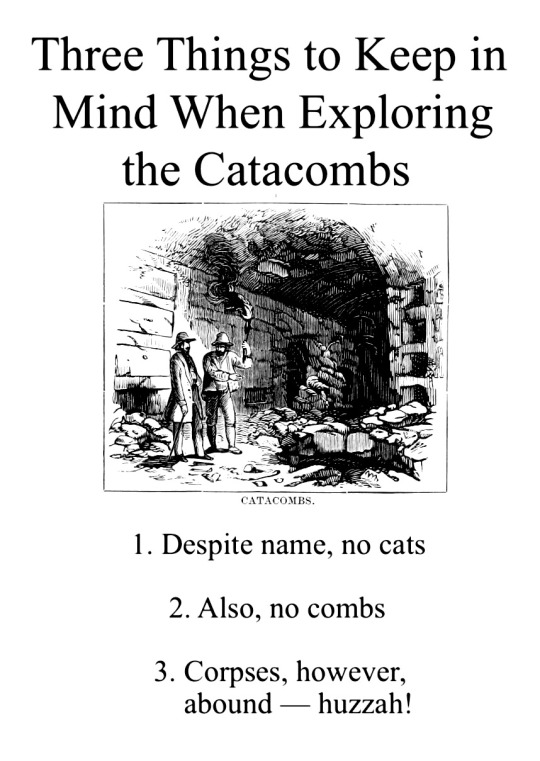
3K notes
·
View notes
Text
sonic fans choosing a specific iteration/universe to follow is so funny it's like we're picking a major or smth like "i major in game sonic lore" "i specialize in archie sonic comics" "i have a minor interest in the sonic movies"
619 notes
·
View notes
Text
hell yeah uh huh get it white boys get it
i haven’t completed an animation in over 5 years but the urge to make this came over me like demonic possession
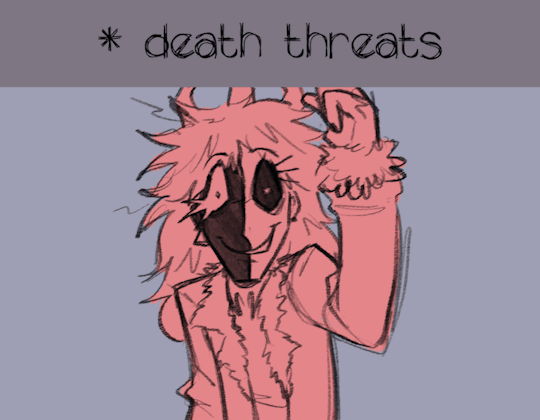
here’s a gif version as well ^_^
#fazgang designs#honestly i’m proud of this#i want to drive a ford explorer into their living room#it took me like 4 tries to import the font onto procreate but it was also 5 am and i had the jitters#art#animation#BLAAH MUCKA BLUCKA!!!!!!#cccc#chonny jash#chonny’s charming chaos compendium#heart chonny jash#mind chonny jash#soul chonny jash#heart cj#mind cj#soul cj#hms#mucka blucka#flash warning#i think
537 notes
·
View notes